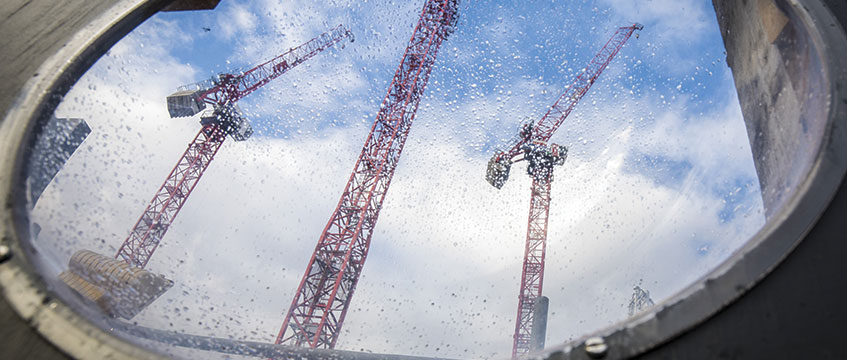The volume of new office projects commenced in the capital has continued to fall from the record highs set a year ago, despite new developments targeting the life sciences sector.
Deloitte’s latest London Office Crane Survey tracked new starts totalling 3.7m sq ft across 29 schemes between April and September.
Although this was above the 10-year average of 3.4m sq ft, it was 12% down on the previous survey, which itself saw a drop of nearly a fifth from the record highs of last winter’s survey.
Without two big life sciences projects – the 750,000 sq ft One North Quay in Canada Water, SE16, and the 537,000 sq ft Tribeca-London in King’s Cross, N1 – new starts would have been down by 42% compared with the previous survey.
These two life sciences deals were also the sole contributors to new construction in their respective Docklands and King’s Cross submarkets in the most recent study, while life sciences as a whole made up a third of all new construction by volume.
Challenging year
Caroline Waldock, partner and real estate lead at Deloitte, said: “It has been a challenging year for London’s office market. Not only has it had to grapple with continued geopolitical and economic uncertainty, but construction contractor insolvencies have placed additional pressures on an already distressed construction sector.”
Waldock added that the heady period of activity from the life sciences sector would “reinvigorate quieter markets in the short term” but cautioned that demand for this type of space was less certain.
During the six months, completion delays inflated the volume of projects under construction to a record high of 16.8m sq ft, with the volume of space delivered coming in at 2.7m sq ft across 35 schemes – 28% less than the 3.8m sq ft expected.
Developers listed planning issues as the leading challenge to development, along with construction costs, while supply chain issues became less of a concern.
As a result, despite developer optimism, Waldock predicted that the challenges faced by the construction industry would “continue to impact completion levels for the foreseeable future”.
“The subsequent squeeze on supply may well lead to increased rents for the most in-demand office spaces,” she added.
Positive sentiment
The survey did, however, find “overarching positive sentiment towards sustained growth in the development pipeline”, with 92% of developers optimistic that the development pipeline would improve or stay the same over the next 12 months.
It pointed to the easing of construction cost inflation and recent interest rate cuts as reasons for recent optimism, which could, according to Waldock, be “crucial in boosting new scheme numbers”.
New refurbishment projects, meanwhile, were down by 57% from the last survey, outpaced by new-build starts for the first time since mid-2020.
Philip Parnell, partner, head of valuation and sustainability & climate lead at Deloitte, said the fall in refurbishment levels was likely to be a reaction to recent economic, geopolitical and wider global concerns during the period.
However, he added: “Developers’ appetite to maintain their pipeline of activity, coupled with the continuing need to address evolving occupier requirements and ESG credentials, suggests this may be a blip rather than a trend.”
Send feedback to Dominic Plaskota
Follow Estates Gazette











